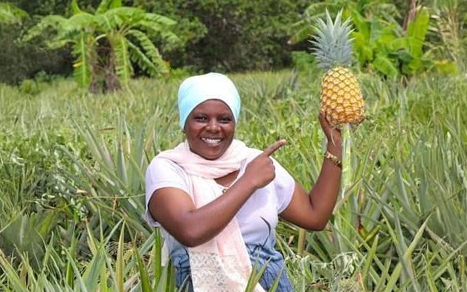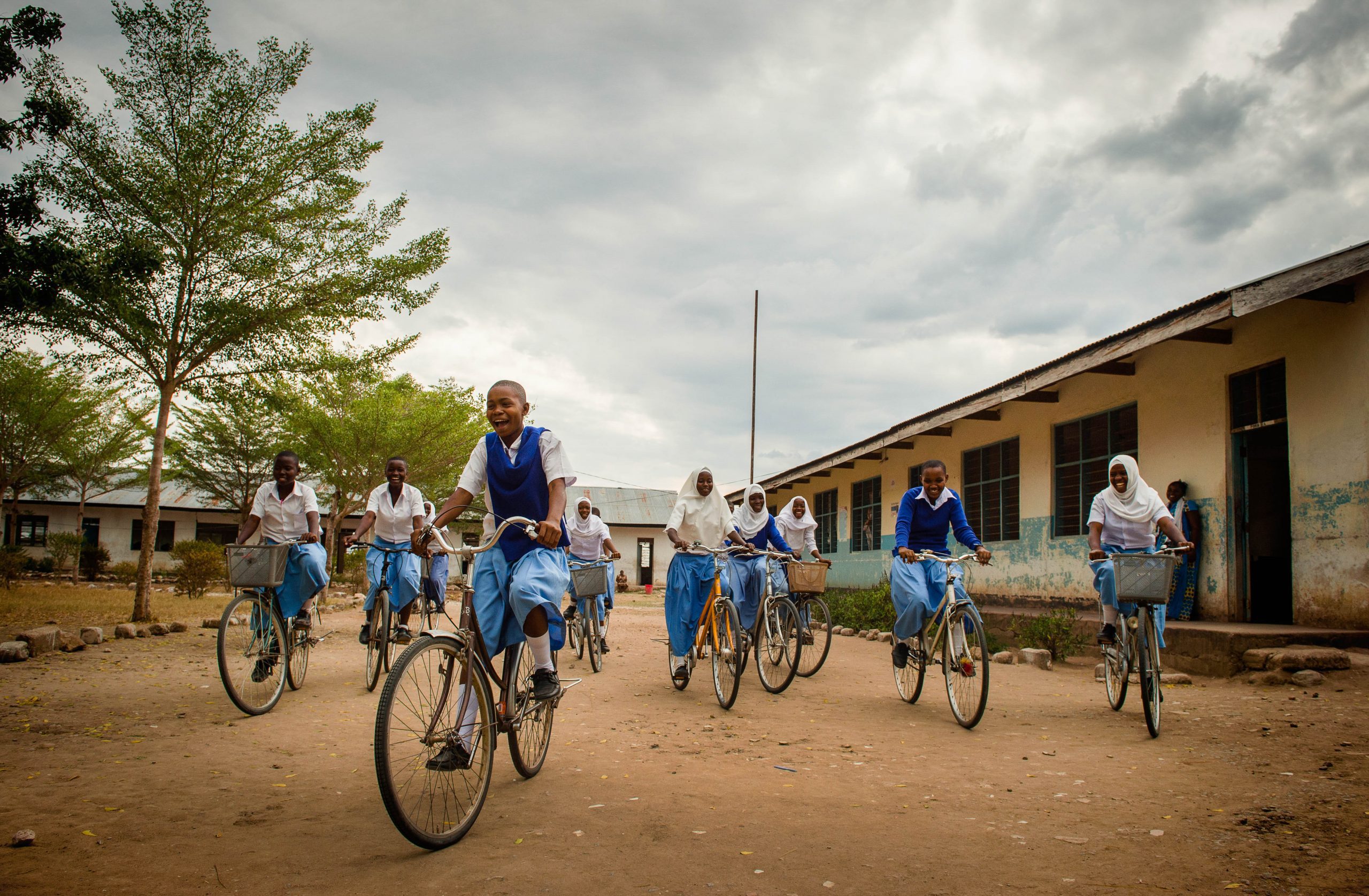Across rural Africa, including in my country, Tanzania, steady jobs are scarce and many people work on small subsistence farms and in agriculture in order to support their families
Women face even greater barriers as they are often excluded from training opportunities, land ownership, and access to resources to make their agricultural businesses profitable. At CAMFED we support women to learn new skills in agriculture and set up small businesses so that they can earn a stable income and seize job and further education opportunities.
Women such as Naima, Zubeda, and Halima, members of our CAMFED Association — the network of women leaders educated with CAMFED support— who are from Kibiti district. Through CAMFED’s partnership with the Small Industries Development Organization (SIDO) and investment by the UK Department for International Development’s Girls’ Education Challenge, these women received training in beekeeping, and honey processing and packaging, producing a high quality product and meeting local demand for honey.
Further training in bookkeeping and marketing is enabling them to sell effectively, increase profits, and reach an even wider market. Now, with profits from their businesses, Naima, Zubeda and Halima are investing back into their community, passing on knowledge, and encouraging other young women to strike out in business.
I spoke to these three enterprising young women to find out more about their beekeeping experiences and ambitions for the future.
Anna: How did you hear about the opportunity to train as a beekeeper?
Naima: We heard it from our fellow CAMFED Association (CAMA) Leader at district level.
Anna: What are some of the new skills that you have learned?
Naima: I learned entrepreneurship and marketing skills through training from SIDO in partnership with CAMFED.
Zubeda: I learned about beekeeping and their suitable environment; bees are kept in watery places and flowering trees. And I learned about suitable conditions for a bee, for example bees don’t like noise, nor certain smells.
Halima: I learned how to keep business records and how to write sales and expenses along with learning beekeeping.
Anna: What do you enjoy most about beekeeping?
Zubeda: I enjoy it so much when I wear bee clothing (beekeeping suits). It feels very good as the bees can’t sting me!
Halima: I enjoy knowing how to process, pack, and label honey.
Anna: What challenges are there with beekeeping?
Naima: One challenge is meeting with dangerous animals like a snake, or being stung by the bees.
Zubeda: There was the time when the trees which we used to keep our bees were burned down and caused a great loss. However, to avoid this, we now clear the areas surrounding our beekeeping area.
Halima: As we keep our bees in the forests, sometimes insects disturb the bees which makes them migrate to other places, as bees can’t tolerate any kind of disturbance. To stop this, we always paint trees with oils so that the insects can’t climb the bee trees.
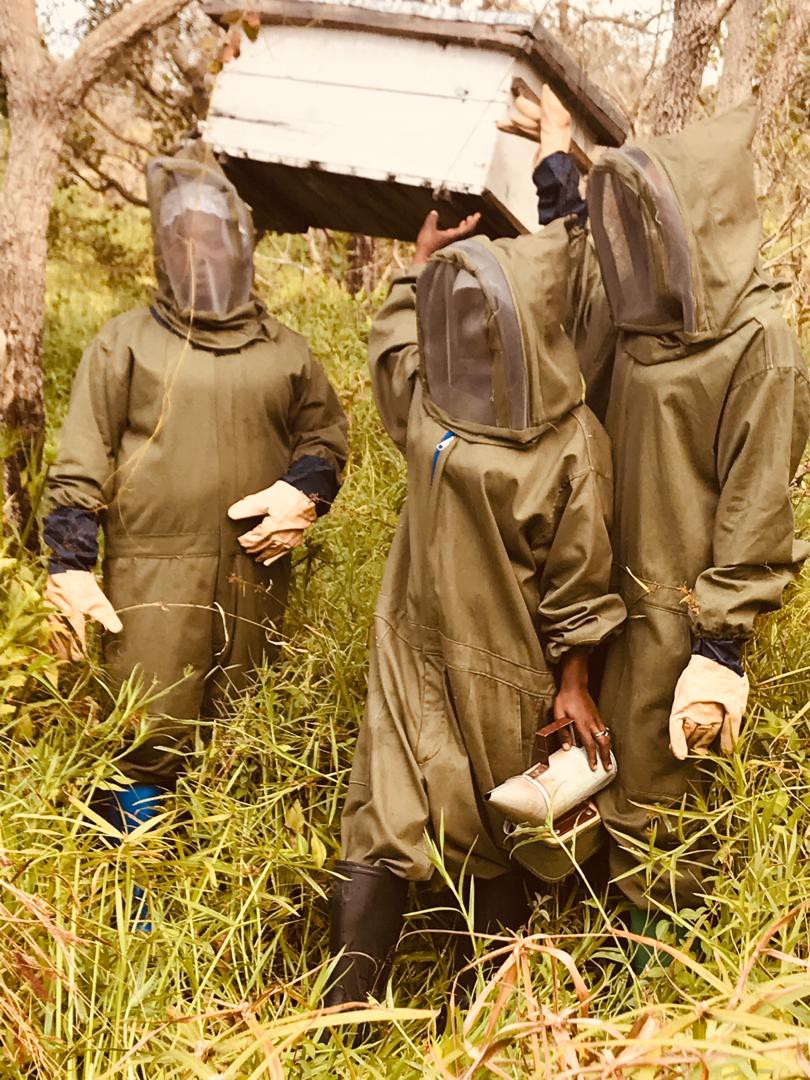
The beekeeping group dress in protective suits when harvesting honey. Photo: CAMFED/Anna Sawaki
Anna: Where do you sell your honey?
Naima: We sell to all, for example, teachers, public servants, villagers, and the community in Kibiti. I sell it from home-based shops, by delivery and through other people’s shops. We also meet with a person one-to-one and tell them about the products.
Zubeda: I always sell where there are ceremonies, in meetings such as parents meetings and women’s forums, and on the streets from door to door. We take pictures of the honey and post them on social media where people can see and order, as well as promote it during CAMFED Association meetings.
Halima: I sell in the community and by using social media. Sometimes I deliver honey into offices, schools, and restaurants.
Anna: Have you faced any challenges with the business and how did you overcome them?
Naima: Yes, one challenge was low profits, but I solved this by establishing proper ways of registering all products and buyers, so now it is easy to control the business and stock in general.
Zubeda: Sometimes we delay taking out honey from the bees due to high water levels, and as a result, the bees eat the honey and we gain nothing. To deal with this, we make sure that we take the honey on time to avoid loss.
Halima: As this beekeeping is a CAMFED Association group project, we encourage those who are not participating to do so.
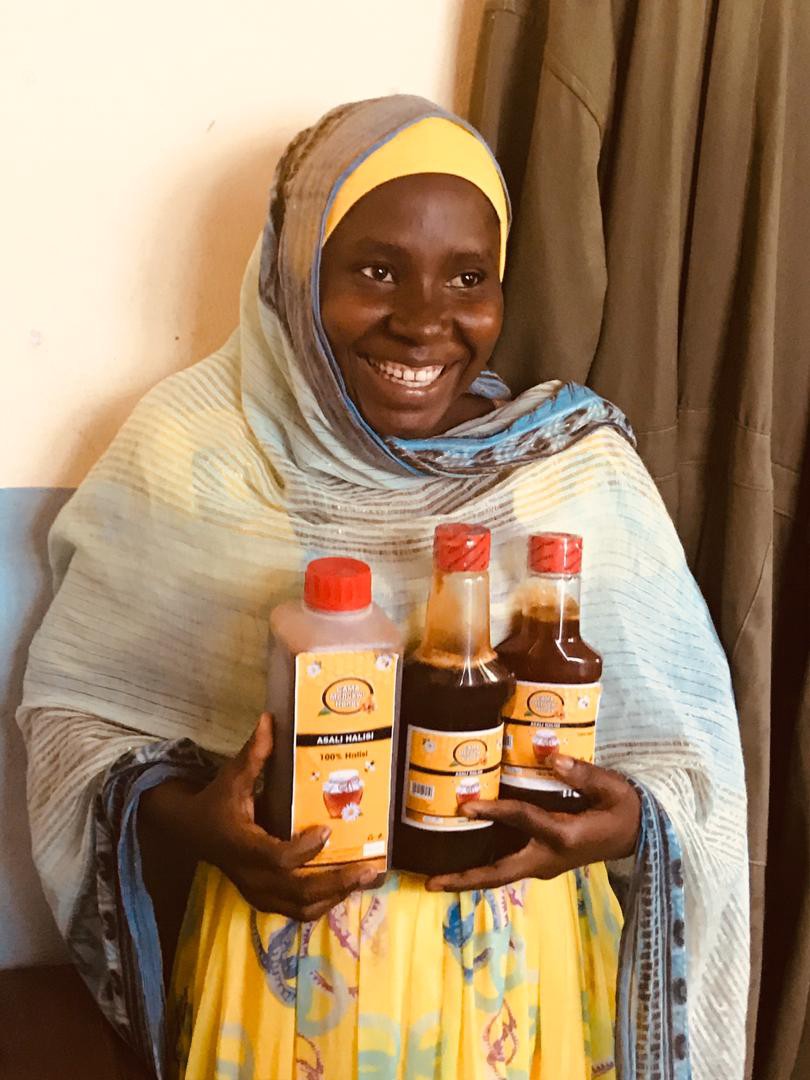
Naima, one of the beekeeper group members, holding packaged honey ready to go to market. Photo: CAMFED/Anna Sawaki
Anna: How has your life changed since you received this training?
Naima: My life was changed because before training I knew nothing about business and beekeeping but now I can train others and manage to get daily income to support my family and to meet my personal needs.
Zubeda: I have been famous since I started doing this business as many people know me now because of the business, and I earn some money for my own needs.
Halima: Since I gained much knowledge about processing, packing, and labelling honey, my life has changed drastically as from that training. I also learned how to make soap, and how to label my soaps which helps me to earn money not only from beekeeping business but also from other businesses.
Anna: What is your advice to other young women learning a new skill/starting a new business?
Naima: My advice is that girls should not be afraid to learn new skills or start a new business because it will help them become self-employed and employ others. Starting a new business or gaining new skills helps you gain experience and knowledge in business and life generally and will help you to become financially independent.
Zubeda: They should take risks and not be afraid of anything!
Halima: They should set their own goals and understand why they are doing business. They should also make sure that they acquire more knowledge, have the discipline of money, promote their businesses anywhere, and not to feel ashamed nor shy about their business. An entrepreneur isn’t supposed to feel shy at all.
Anna: Why is it important to give young women opportunities in business?
Naima: It is important because it helps them to get rid of economic hardship.
Halima: It’s important because this helps girls to avoid teen pregnancy and early marriage, as a business helps them earn money which will help them to be financially independent.
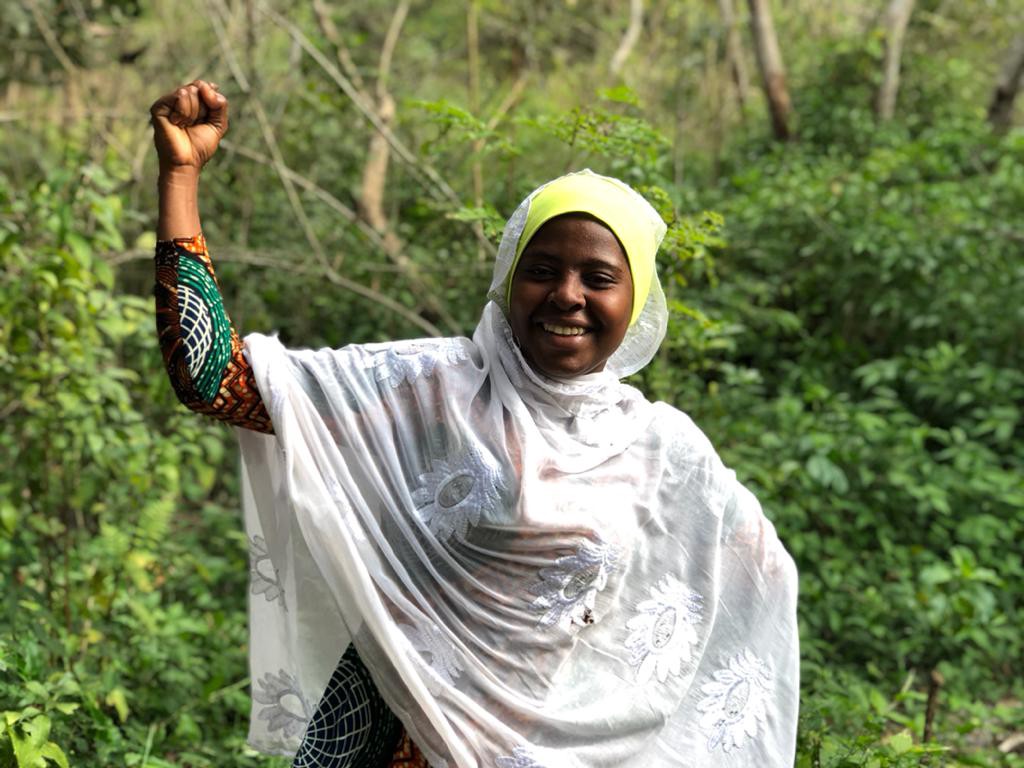
Through the CAMFED Association more women like Zubeda are able access training and new skills, enabling them to gain independence and give back to their communities. Photo: CAMFED/Nasikiwa Duke
Anna: How are you giving back to your family and community?
Naima: Through the profits I get, I manage to help my family to get important items like food, clothes and shelter. I also manage to donate to a CAMFED Association (CAMA) monthly contribution to support other vulnerable children in my community. I also volunteer in community activities like teaching the Transition Guide program (supporting young women in the journey from school to entrepreneurship, employment or further education) and educating other young women in our schools.
Zubeda: I always cooperate with other CAMFED Association members to help our society. For example, we cooperated to remove bees from the hospital. I volunteer as a CAMFED Transition Guide which helps Form four leavers to understand the CAMFED Association network, entrepreneurship, money, and health matters. I also help my parents to take care of the family.
Halima: I always encourage CAMFED Association members to have confidence in their business and ask for support if they feel discouraged. I encourage them to take charge of their lives through their businesses. I always attend Association meetings and contribute to CAMFED Association monthly funding. I also have my friend whom I always share ideas with and do business together.
Anna: What are your goals for the future?
Naima: To have a big company of honey processing and to recruit many CAMFED Association members from my district.
Zubeda: I want to be a big businesswoman, I want to own my own cereal shop!
Halima: I want to be a famous businesswoman!
Anna Sawaki is Program Manager at CAMFED Tanzania, working to support girls and young women from marginalized communities to go to school, learn, thrive and become leaders in their communities.
As members of the CAMFED Association, educated young women use their lived experience to rally community members and other duty bearers around those most vulnerable, with the aim of changing the status quo to make the world a better, safer, more equitable and more just place for all of us.
If you are ready to support African girls to learn and lead, why not get involved today?
